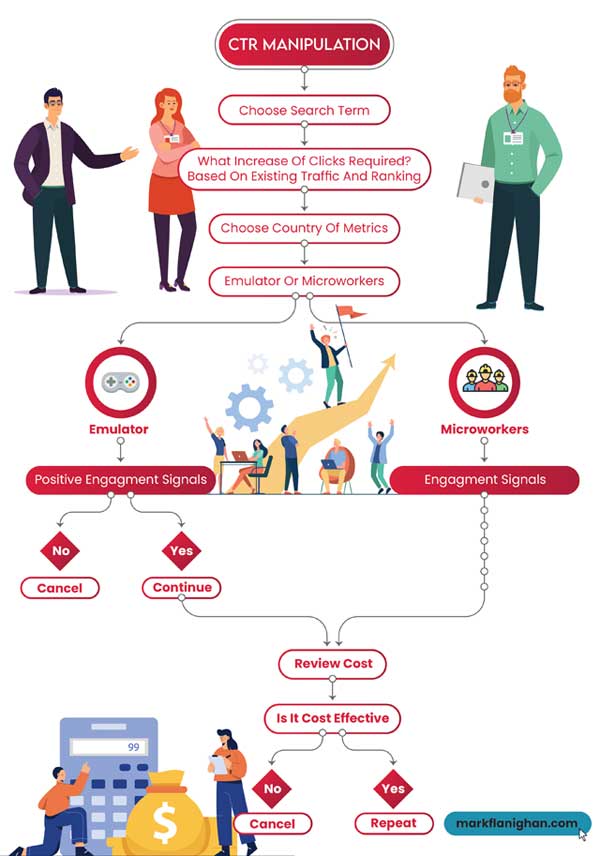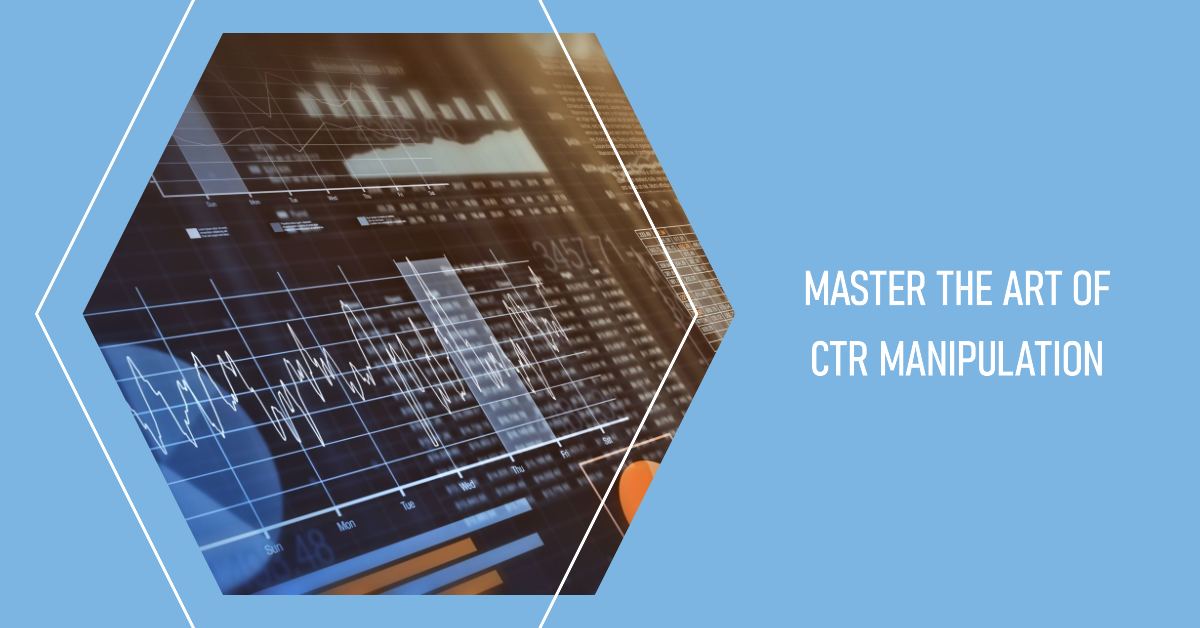Discovering the Relationship In Between CTR Adjustment Services and User Habits
In the world of digital advertising, the influence of click-through rate (CTR) adjustment solutions on user habits remains a facility and intriguing topic. As online systems increasingly depend on CTR metrics to measure the success of web content, items, and services, recognizing just how these manipulated prices influence customer engagement and decision-making procedures is extremely important. The interaction between CTR adjustment and individual behavior elevates concerns regarding authenticity, credibility, and the moral ramifications of such methods. By exploring the complex partnership in between CTR adjustment services and user behavior, interesting insights arise that might improve our understanding of digital marketing techniques and their effects on consumers.
Effect of CTR Manipulation on Behavior
Evaluating the impact of Click-Through Rate (CTR) control on individual behavior discloses essential insights right into the dynamics of online involvement. CTR adjustment entails synthetically blowing up the variety of clicks on a certain link or promotion to deceive individuals and internet search engine. This method can cause an altered perception of a webpage's appeal or importance, ultimately influencing individual actions.

Additionally, CTR control can skew the information used by formulas to personalize individual experiences. This can cause customers being offered web content that does not align with their preferences or rate of interests, inevitably causing a decline in individual fulfillment and involvement. Understanding the effect of CTR adjustment on individual behavior is necessary for keeping transparency and count on on the internet interactions.
Individual Interaction With Adjusted CTR
Customer involvement with controlled CTR information often results in skewed understandings of on the internet material popularity and importance. When users interact with content based on artificially inflated Click-Through Fees (CTR), they might think that particular info, items, or services are much more prominent or reliable than they really are. This can lead to individuals making decisions based upon misleading data, causing possibly unfavorable outcomes.
Interaction metrics like sort, shares, comments, and time invested on a web page are often influenced by CTR manipulation. Individuals might be much more inclined to involve with content that appears to have greater involvement rates, further bolstering the cycle of manipulated assumptions. Consequently, web content developers and advertisers might prioritize generating web content that generates high CTR instead of focusing on developing genuinely useful and relevant product.

Psychological Impacts of CTR Manipulation

Additionally, the mental effects of CTR adjustment can likewise materialize in modified decision-making processes. Customers might be much more inclined to click web content only based upon its viewed popularity, instead of its actual worth or significance to their demands. This behavior shift can cause a shallow engagement with on-line material, where users might ignore premium but much less popular offerings in support of those with synthetically boosted CTRs.
Essentially, the emotional implications of CTR manipulation highlight the value of keeping transparency and credibility in online communications to promote authentic individual involvement and trust fund.
Ethical Factors To Consider in CTR Manipulation
CTR adjustment increases problems concerning tricking individuals, misshaping data analytics, and jeopardizing the integrity of on-line material. By synthetically pumping up CTR, users may be misinformed right into clicking on links or ads they would certainly not have actually selected otherwise, leading to an insincere online experience.
An additional honest aspect to consider is the fairness of manipulating CTR to get an unfair advantage over competitors. Participating in such methods not only violates concepts of reasonable play however also undermines the trust fund that individuals place in online systems. It is important for businesses and electronic online marketers to promote ethical criteria in their methods click resources to guarantee transparency, reputation, and long-lasting sustainability in the online setting.
Ramifications for Digital Advertising And Marketing
With the raising reliance on electronic platforms for advertising and marketing functions, the practice of controling click-through rates (CTR) postures considerable ramifications for the performance and stability of electronic advertising strategies. CTR manipulation can cause skewed information analytics, deceiving marketing experts into thinking that their projects are carrying out better than they in fact are. This can lead to misallocation of sources, with companies investing in underperforming approaches based upon falsified visit site CTRs. When customers recognize that CTRs have actually been controlled, it can deteriorate trust in the brand name, leading to lasting adverse consequences for consumer commitment and brand name reputation.
In addition, making use of CTR adjustment solutions can create an unreasonable competitive landscape, where business that participate in such methods get a fabricated advantage over those that stick to honest advertising standards. This can stifle innovation and creativity in digital marketing, as success becomes even more concerning control strategies than delivering real worth to consumers. Ultimately, the implications of CTR manipulation for electronic advertising extend beyond short-term gains, influencing the total sustainability and trustworthiness of advertising initiatives in the digital world.
Verdict
Finally, the connection in between CTR control services and customer habits is complex and complex. The effect of CTR manipulation on habits, customer engagement with controlled CTR, mental impacts, ethical factors to consider, and implications for electronic marketing all contribute in shaping this connection. Comprehending these characteristics is essential for marketing experts and scientists alike in order to browse the honest effects and optimize the effectiveness of their electronic marketing strategies.